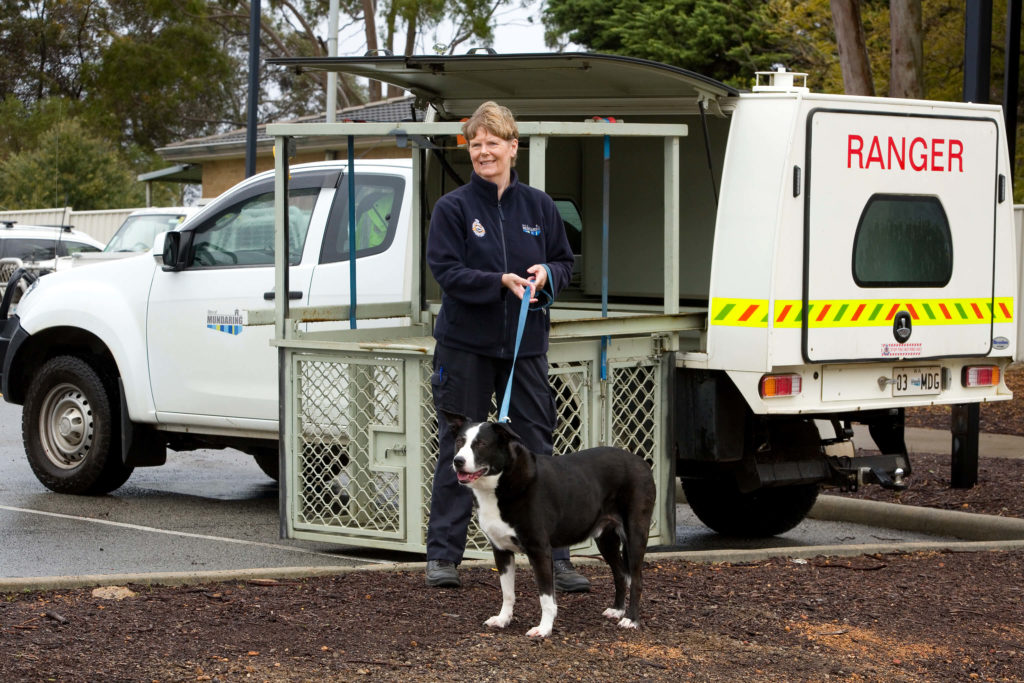Why is overtime often included in post-13 week calculations for workers’ comp claims?
This question is often asked when LGIS members receive the post-13 week calculation of weekly payments for workers’ compensation claims.

Employee Relations Service Manager, WALGA
Davina is an experienced industrial advisor who has significant experience in advising the local government sector on industrial relations and human resources matters. She has worked at WALGA for over five years and has tertiary qualifications in law and arts. Before joining WALGA, Davina worked in a law firm and spent time abroad working at the Samoan Ministry of Commerce, Industry and Labour.

Manager, WorkCare Claims, LGIS
Barry has over 45 years' experience in insurance, predominantly in personal injury claims. He's specialised in self-insurance and has a deep understanding of worker's compensation claims management coupled with a mutual philosophy. Barry has worked with many WA governments having been with LGIS for over 18 years. He understands the complexity of the local government workforce.
The worker, Fred Dagg, has worked at the Shire of Westralia as a Plant Operator for 35 years. Fred was an accomplished footballer and cricket player having represented the town at many sporting competitions over the years. Since his sporting days Fred has lead quite a sedentary lifestyle and bi-lateral knee degeneration was causing him some concern although he was able to undertake the tasks associated with his job at the Shire. Recently Fred suffered an injury to his left knee which has been diagnosed as a ruptured anterior cruciate ligament (ACL) with aggravation to underlying knee degeneration.
Scenario A
Fred’s injury occurred while he was getting out of his grader at work. Fred’s surgeon has recommended he undergo surgery to repair the ACL joint, however, believes he will have trouble returning to his pre-injury duties due to the physical demands and potentially will come to a total knee replacement in the future.
The worker, Fred Dagg, has worked at the Shire of Westralia as a Plant Operator for 35 years. Fred was an accomplished footballer and cricket player having represented the town at many sporting competitions over the years. Since his sporting days Fred has lead quite a sedentary lifestyle and bi-lateral knee degeneration was causing him some concern although he was able to undertake the tasks associated with his job at the Shire. Recently Fred suffered an injury to his left knee which has been diagnosed as a ruptured anterior cruciate ligament (ACL) with aggravation to underlying knee degeneration.
Upon receiving the claim, the LGIS Claims Consultant will reach out to Fred and the Shire and explain how the claims process works so all parties are communicated to and understand the legislation and LGIS’s role.
This question is often asked when LGIS members receive the post-13 week calculation of weekly payments for workers’ compensation claims.
The LGIS member services team comprises of five dedicated account managers with a portfolio of members. This means each member has one account manager – so you know who you’re speaking to and we know your organisation.
Cybercrime is by no means new. But now, attackers are getting even more sophisticated – targeting operational technology (OT) infrastructure. From tampering with production lines to meddling with water treatment plans, these attacks can have grave consequences.
Post Fred’s medical treatment and recovery period LGIS will assist to return Fred to his pre-injury capacity. This process will involve our internal Injury Management Consultant working together with Fred and the Shire to facilitate a return to work. If appropriate, an independent external rehabilitation provider may be appointed.
Under the Act, the employer is obliged to assist the worker, by way of rehabilitation, back into the workplace to his pre-injury duties. With Fred’s underlying problems the prognosis is not ideal as medical evidence indicates it is unlikely that he can return to his pre-injury role. The LGIS team will work with all parties to determine an appropriate outcome which could include alternative roles within the Shire or redeployment.
From a workers’ compensation perspective, if Fred cannot return to his pre-injury duties, it is likely a lump-sum payment would be made to him to redeem his on-going entitlements under the Act. Fred may consider his options and may choose to resign upon receipt of the lump-sum payment as he is unable to work in the Plant Operator role.
If you have any questions about this process or workers’ compensation claims in general, please reach out to the LGIS WorkCare team on 9483 8876.

Scenario B
Fred’s injury occurred while he was camping on the weekend. Fred took two months’ sick leave due to his knee injury and has now contacted the Shire saying his knee is better and he wants to return to work. Fred has provided the Shire with a medical certificate covering his time off which simply states he was absent from work due to an injury but he is now fit to return to work. With Fred’s consent, the Shire has written to Fred’s treating doctor with further questions about Fred’s ability to undertake the Plant Operator role but the doctor has not provided adequate information in response.
Where an employee like Fred has taken a significant period of time off work for an injury, before returning to work the Shire needs to be satisfied that:
it is providing a safe working environment for Fred;
having Fred back at work will not adversely affect the safety of Fred’s colleagues;
it has been provided with medical evidence that Fred is fit to return to his full duties or if Fred cannot undertake his role on an unrestricted basis, the relevant work restrictions.
In order to satisfy these requirements, the Shire will require medical information about the nature and extent of Fred’s injury and any reasonable adjustments that may be required upon his return to work.
As Fred has not provided sufficient medical evidence of the extent of his injury and Fred’s treating doctor has provided limited information, the Shire will need to consider whether it is reasonable to direct Fred to attend a fitness for work assessment before returning to work. The right of an employer to request an employee to participate in a fitness for work process must be ‘lawful and reasonable’. Whether the request is reasonable will depend on the circumstances of each case. The relevant considerations to determine if a request is reasonable (see Cole v PQ Australia Pty Ltd T/A PQ Australia [2016] FWC 1166 and Ingall v Virgin Australia Airline Pty Ltd T/A Virgin Australia [2019] FWC 4947) may include:
Is there a genuine indication of the need for the examination such as prolonged absences from work, absences without explanation or evidence of an illness which relates to the capacity to perform the inherent requirements of the job?
Has the employee provided adequate medical information which explains the absences and demonstrates fitness to perform duties?
Is the workplace particularly dangerous or risky?
Are there legitimate concerns that the employee’s illness will impact on others in the workplace?
Has the employee agreed to the assessment by the practitioner selected by the employer?
Is the medical assessment truly aimed at determining, independently, whether the employee is fit for work now or in the future?
When managing an employee like Fred, the Shire should communicate clearly with him about the Shire’s and Fred’s safety obligations and the medical evidence required by the Shire before Fred can safely return to work.
WALGA Employee Relations provides comprehensive human resource management and industrial relations support to local government members. WALGA Employee Relations regularly provides advice on fitness for work matters to local governments which subscribe to the service. For more information, please visit the WALGA website.
Each month we take your questions to one of our LGIS team members to answer.
If you want to submit a question for next issue, email us at [email protected]

As a local government delivering services to your community, any interactions you have with third parties – directly or indirectly – introduces liability risk exposures.

The Containers for Change initiative incentivises community members to recycle. It encourages the community to collect eligible containers, take them to a collection point, and earn a refund of 10 cents for every container.

Manual tasks are performed by all workers within local government, and are classed as physical work activities that can be defined as any activity requiring a person to use their musculoskeletal system.
LGIS is the unifying name for the dedicated suite of risk financing and management services for WA local governments, established by the WA Local Government Association in conjunction with JLT Public Sector (part of the Marsh group of companies). LGIS is managed by JLT Public Sector (ABN 69 009 098 864 AFS Licence 226827).
Risk Matters, via this website, is designed to keep members, their staff and elected members informed on topical risk management and insurance issues and LGIS programs and services.